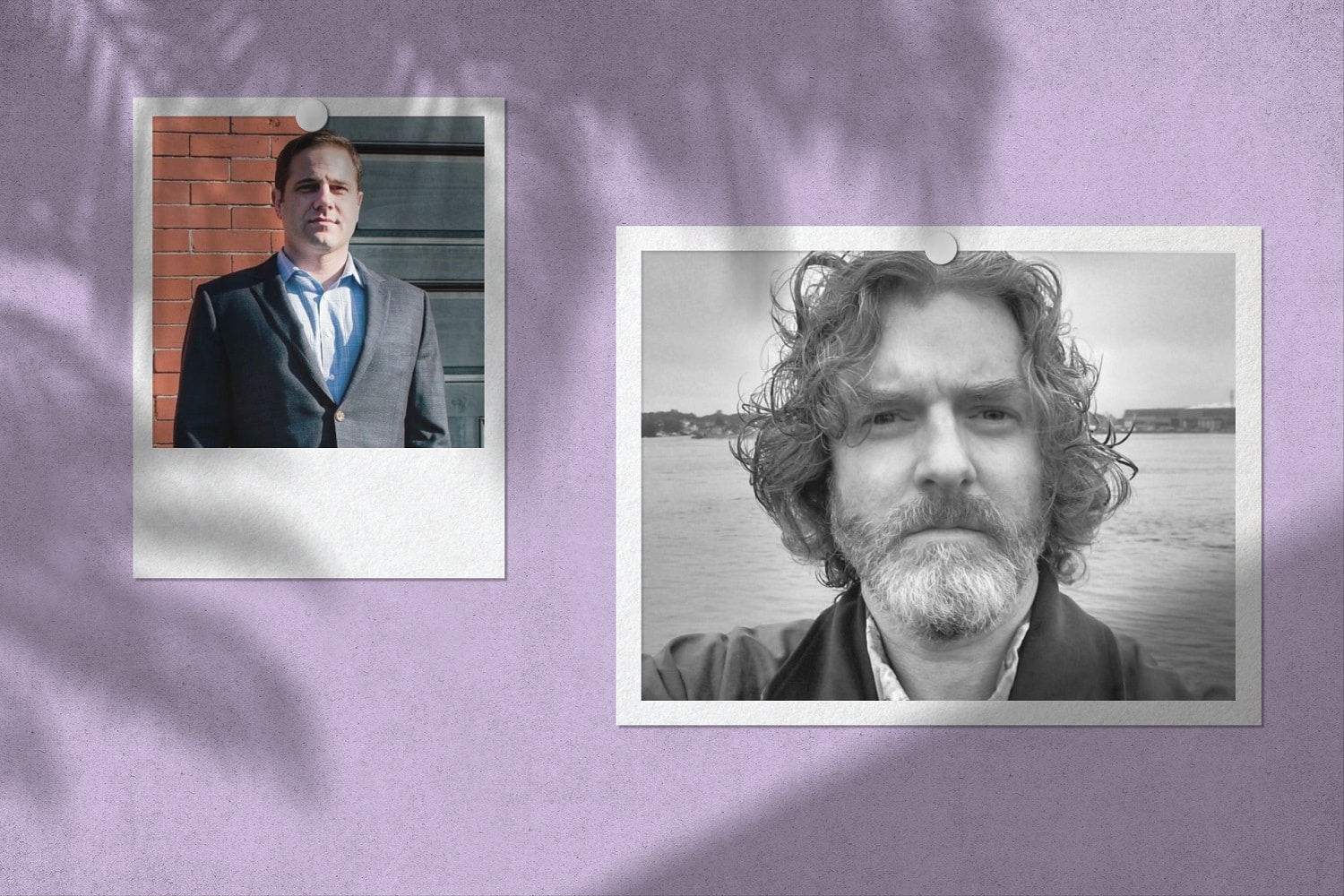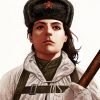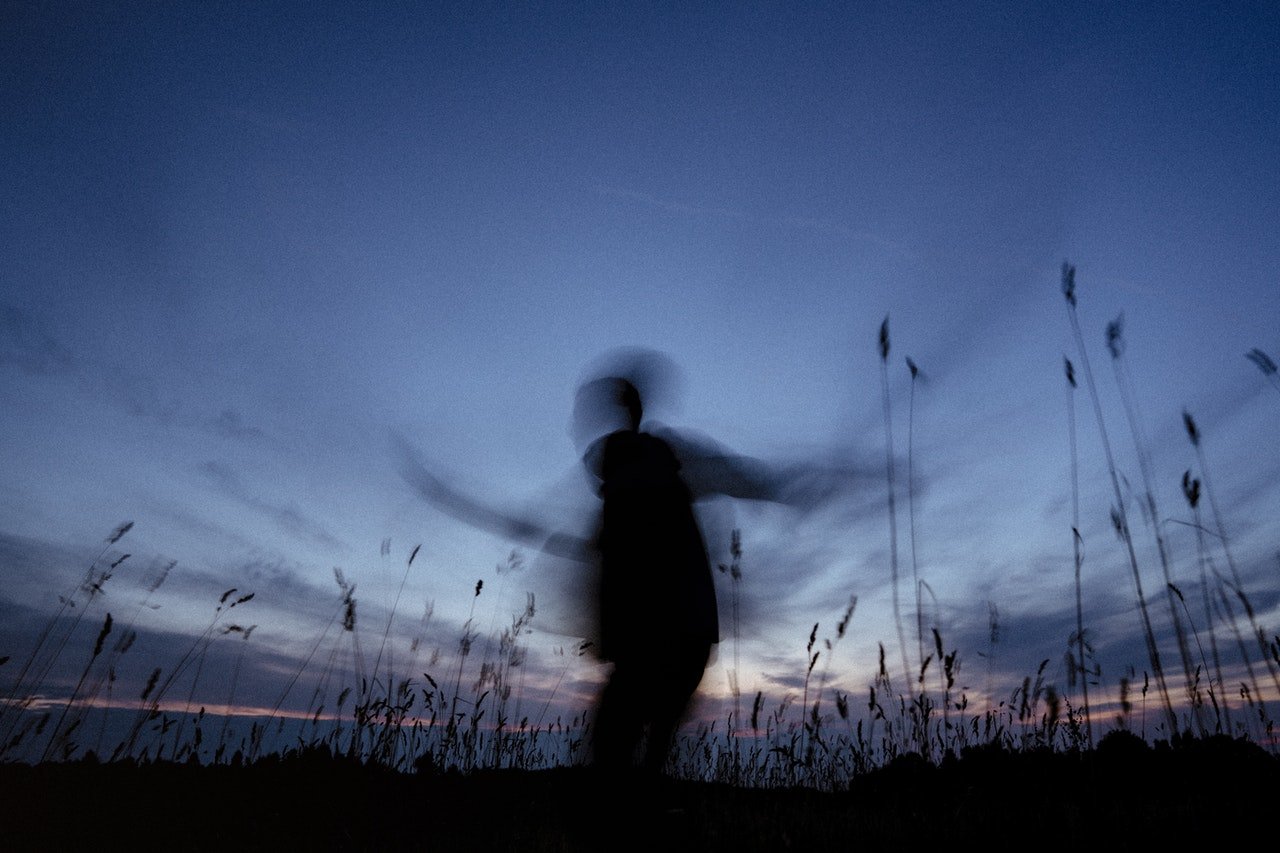Authors J.B. Stevens and Zakariah Johnson discuss Zakariah’s new book “Egg on Her Face: Stories of Crime, Horror, and the Space in Between”.

I recently had the pleasure of speaking with Zakariah Johnson, author of the Alien Buddha-published short story collection Egg on Her Face: Stories of Crime, Horror, and the Space in Between. I read the collection and came away impressed. Johnson is able to do more in a short piece than many authors can accomplish in a full-length novel. His prose is well crafted and his storytelling chops are top-shelf. Below is our discussion.
Zakariah, thank you for taking the time to speak with me. Can you tell me about yourself and your background?
One of my kids once asked what I want on my tombstone and I told him, “Friend, Father, Storyteller.” Which I consider the key points to my identity, “friend” including my role as husband. I also play banjo in jazz and bluegrass combos, strictly amateur ones, which is my main social outlet.
EGG ON HER FACE is a collection of 14 stories, about half crime fiction, half horror, with a lot of cross-over between the genres…
I’ve lived in New Hampshire for longer than anywhere else and I include a lot of New England settings in my writing, but I was one of those kids who moved once or twice every year growing up, with a Yankee mom and a Texan dad, so I’m never sure how to answer the question “Where are you from?” The settings in my stories reflect that transience.
Your upbringing sounds like the perfect incubator for the soul of a writer. That varied experience can be felt in your work. Can you talk about your new book?
EGG ON HER FACE is a collection of 14 stories, about half crime fiction, half horror, with a lot of cross-over between the genres, originally published in other venues between 2014 and 2021. When selecting the stories, this statement guided the decision: “You can escape from most traps as long as you’re willing to chew off the right limb.” Which I believe is true, but my protagonists face some pretty brutal choices.
I love it. The image of a trapped animal gnawing at itself is so visceral, what a great place to start from. Are some of your stories based upon actual primal encounters in your past, or is it pure fiction? Where do you draw your inspiration from?
I don’t write a lot of typical crime fiction—there’s not a lot of mean streets or heists or gangsters or drug deals gone wrong in my work because that’s not the world I know. But I know a lot about how small groups in isolation react under pressure, be it on a boat, an oil camp in the desert, or a too-small house on a road with no neighbors. So, the stories for the most part “didn’t really happen,” but they’re stories that can and do happen all the time.
A tight setting is always a great pot to make emotion boil over—I admire your insight. Is genre fiction your first love or did you find it later in your journey?
I didn’t read a lot of crime fiction until my father-in-law turned me on to Elmore Leonard, and then I read everything of his I could get. I studied the “Great Books” program at St. John’s College in Santa Fe, which in retrospect was full of genre fiction: Jane Austen’s romances, Dostoevsky’s murder mysteries. It just wasn’t called genre since it was “canon.” The cross-over between crime fiction and horror is even right there in Aeschylus’s Oresteia trilogy, which is as noir AF: a son kills his mom and her lover for murdering his dad who killed his sister? Come on, that’s metal!
It’s metal AF. So I understand how you came to love crime and horror fiction. But what about creating it? Can you talk about how you produce your stories?
My writing process is lots and lots of rewriting. I try to walk as much as possible and that’s when I come up with most ideas. There’s a Rite-in-Rain notebook and a pencil stuffed in the pockets of all my coats and vests. Using a pencil is a left-over habit from when I was an archaeologist; we wrote in pencil because it won’t smear. But you also never erase, cross out if you have to, but never erase your raw field data or initial ideas.
My writing process is lots and lots of rewriting. I try to walk as much as possible and that’s when I come up with most ideas.
An archeologist is not a background that comes up in many of my interviews, but now that you mention it, I can see certain cross-over themes in your fiction. As far as your fiction consumption, how often do you read short stories?
Constantly! At least one a day, usually more. Mariana Enríquez’s Things We Lost in the Fire is my benchmark for a perfect collection. I adore short stories on their own as well as a way to discover new novelists. We’re living in a short-story golden age. Small presses are putting out more and better content than there’s ever been, and with the internet, they’re able to let readers know where to find it.
I agree, there are micro-presses putting out amazing things and lesser-known authors creating breathtaking stuff. What do you think are the keys to crafting those memorable works?
Tension and release, and real stakes. It goes back to Alfred Hitchcock’s advice to “torture the audience as long as they can stand it.” Or as someone else said, no one wants to read about somebody’s second-worst day—describe the very worst. Real stakes don’t have to be life and death, though. A compelling story can be about three kids playing jacks or a class reunion, but there has to be the threat of irrevocable loss. There’s no take-backs in good storytelling.
No take-backs, I love it—that is a great title for a book. Unfortunately, we are running out of time. But, before we conclude, is there anything else you would like to mention?
It’s a cliché that writing is a solitary profession, but I’ve found that’s not true at all. The writing community is the tightest, most generous I’ve ever worked with—fellow writers, bookstore owners, editors, publishers; everyone in the community gives their time and aid, and they celebrate everyone’s success. Because anytime anybody reads any book, we all win.
I want to thank Zakariah for his time and his words. Make sure to check out Egg on Her Face: Stories of Crime, Horror, and the Space in Between—you will enjoy it.
*****
For an online archive of articles and conversations by J.B. Stevens, please visit here.





